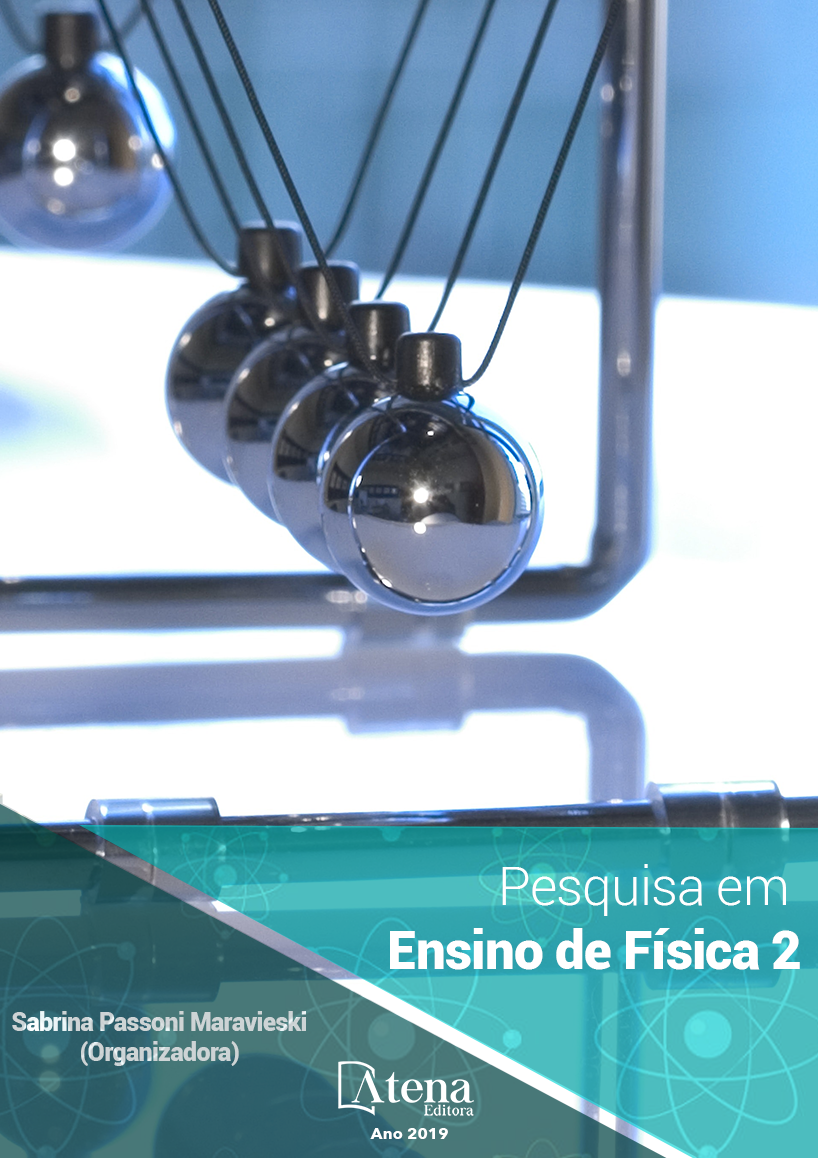
O CONTO LITERÁRIO NO ENSINO DE HISTÓRIA DA FÍSICA: UMA EXPERIÊNCIA COM FORMAÇÃO DOCENTE
A presente pesquisa tem como
objetivo refletir sobre a relação entre física,
cultura e história, e seu uso em sala de aula.
Que contribuições a literatura pode oferecer
como contextualização de elementos da história
da ciência? O aluno em formação observa esta
contribuição? Ele reconhece a importância desta
relação cultural? Qual a opinião do professor
em formação sobre a utilização da relação entre
física e arte em sala de aula? Com resultados,
obtidos a partir de uma avaliação envolvendo
a leitura do conto fantástico “A Milésima
Segunda Estória de Xerazade” do escritor norte
americano Edgar Allan Poe, observamos que os
professores conseguem observar a presença
de elementos científicos no conto, no entanto,
não o relacionem diretamente com o contexto
de produção da obra. Em relação a utilização
do conto no ensino, os estudantes propõem
atividades pontuais de leitura na escola básica,
desde que se mantenha as aulas tradicionais.
Analisamos as respostas dos alunos com o
auxílio da Análise do Discurso.
O CONTO LITERÁRIO NO ENSINO DE HISTÓRIA DA FÍSICA: UMA EXPERIÊNCIA COM FORMAÇÃO DOCENTE
-
DOI: 10.22533/at.ed.10419280314
-
Palavras-chave: Leitura, Literatura, História da Física, Ensino Superior, Formação de professores
-
Keywords: Reading, Literature, History of Physics, Undergraduate Teaching, Teacher training.
-
Abstract:
The present research aims to
reflect on the relationship between physics,
culture and history, and its use in the classroom.
What contributions can literature offer as a
contextualization of elements of the history of
science? Do the students see this contribution?
Do they recognize the importance of this cultural
relationship? What is the teacher’s opinion about
the use of the relationship between physics and
art in the classroom? With results obtained from
an evaluation involving the reading of Edgar
Allan Poe’s fantastic story “The Thousand-andSecond Tale of Scheherazade” by Edgar Allan
Poe, we can observe the presence of scientific
elements in the story. directly related to the
production context of the work. Regarding the
use of the story in teaching, students propose
punctual reading activities in the basic school, as
long as the traditional lessons are maintained.
We analyze students’ responses with the
Discourse Analysis.
-
Número de páginas: 15
- João Eduardo Fernandes Ramos
- Emerson Ferreira Gomes
- Luís Paulo Piassi


